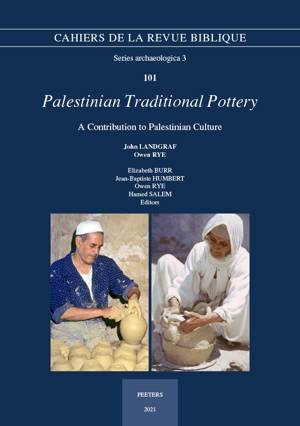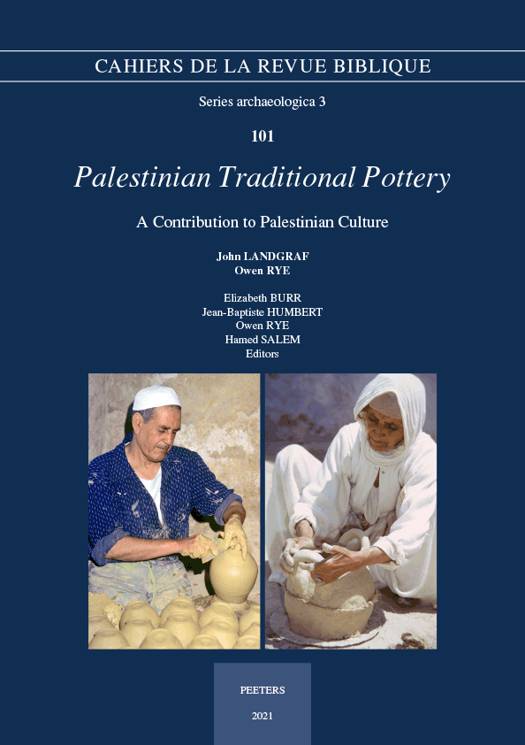
- Retrait gratuit dans votre magasin Club
- 7.000.000 titres dans notre catalogue
- Payer en toute sécurité
- Toujours un magasin près de chez vous
- Retrait gratuit dans votre magasin Club
- 7.000.0000 titres dans notre catalogue
- Payer en toute sécurité
- Toujours un magasin près de chez vous
Palestinian Traditional Pottery
A Contribution to Palestinian Culture. a Fieldwork Study, 1972-1980
Jean-Baptiste Humbert, Hamed Salem, Owen Rye, Elizabeth Burr
88,00 €
+ 176 points
Description
Palestinian Traditional Pottery stands out, first and foremost, as a scholarly testimony to the disappeared and disappearing craft of traditional pottery making by Palestinian women and men potters. It offers a contribution that has been long awaited and is long overdue. The material it provides, both textual and pictorial, is based on field research completed in the 1970s by two very different, yet complementary, researchers and authors. For various reasons, this material lay dormant over four decades until it was retrieved and returned to the light of day. The occasion for the creation of the volume was the death in 2017 in the U.S. of one of the authors, John Landgraf. Fortunately, the other author, Owen Rye in Australia, had most of the written material still in his possession, which was then digitized, arranged, and edited. The graphic material, especially the black and white - and beautiful color - photographs, taken by the two authors, was also gathered and cataloged for use in the book. The photographs of the women potters are particularly poignant, since they date to the final decade of their pottery making activity. Assembling and producing the book required months of painstaking collaborative work by the editors and the layout artist, with results that are worthy of their efforts. This volume invites readers into the two distinct worlds of Palestinian women and men potters at work in the 1970s: the women in or outside their village homes, and the men in their mostly urban workshops. With Palestinian culture under siege, the scholarship presented here aims to record and preserve a key part of that culture. It stands out equally as a memorial volume for John Landgraf, who lived in Jerusalem from 1965 to 1980, dedicating himself to archaeology, ethnography, and social work.
Spécifications
Parties prenantes
- Auteur(s) :
- Editeur:
Contenu
- Nombre de pages :
- 361
- Langue:
- Anglais
- Collection :
- Tome:
- n° 101
Caractéristiques
- EAN:
- 9789042947085
- Date de parution :
- 31-12-21
- Format:
- Livre broché
- Format numérique:
- Trade paperback (VS)
- Dimensions :
- 210 mm x 294 mm
- Poids :
- 1360 g

Les avis
Nous publions uniquement les avis qui respectent les conditions requises. Consultez nos conditions pour les avis.






